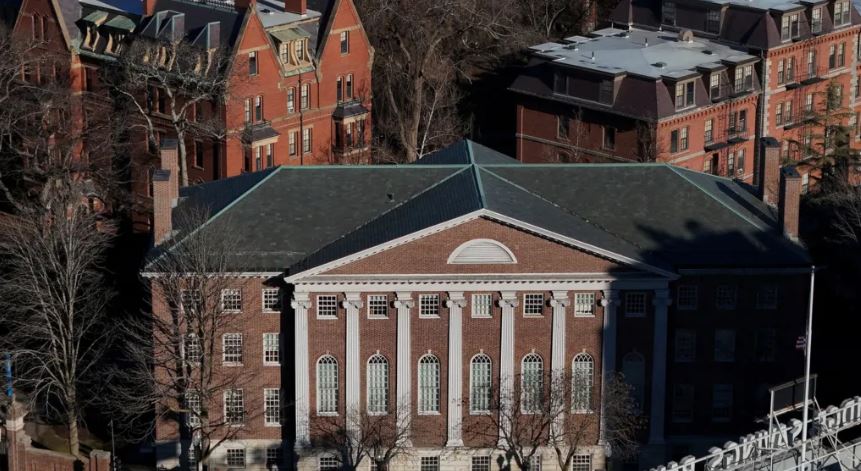Harvard University is refusing to bow to pressure from former U.S. President Donald Trump, even if it means losing billions in federal funding.
In a public letter, Harvard’s interim president Alan Garber made the university’s stance clear: “No government – regardless of which party is in power – should dictate what private universities can teach.” The message came after the university declined to comply with a list of demands from the Trump administration, which included changes in governance, hiring, and teaching practices.
Soon after, the federal government froze $2.2 billion in funding to Harvard.
Trump didn’t hold back. On social media, he called Harvard a “JOKE” and claimed it teaches “Hate and Stupidity.” His statement sparked reactions nationwide, with many students, alumni, and education leaders rallying behind Harvard’s decision. Among them was former President Barack Obama, who labeled Trump’s move as “ham-handed” and called Harvard “an example for other universities.”
However, the U.S. Department of Education accused the university of having a “troubling entitlement mindset” and claimed that federal support must come with a commitment to civil rights.
This funding clash isn’t an isolated incident. Trump and Vice-President JD Vance have frequently criticized universities, accusing them of promoting left-wing ideologies and silencing conservative voices. During his campaign, Trump promised to crack down on institutions he saw as hostile to conservative viewpoints.
The current standoff stems partly from last year’s pro-Palestinian protests on campuses, including Harvard, where some Jewish students reported feeling unsafe. Harvard responded by agreeing to work with a federal task force on antisemitism and made some internal changes, such as dismissing leaders from its Middle East studies center. It also settled lawsuits brought by Jewish students, without admitting fault.
Despite these steps, the university rejected a broader list of directives from the Trump administration last Friday — signaling a firm limit.
Student activist Sa’maia Evans said Harvard’s decision wasn’t just principled, but strategic. “They know they’d face backlash if they gave in,” she told the BBC. “Harvard only acts when it’s held accountable.”
Harvard’s massive $53.2 billion endowment gives it more financial flexibility than most institutions. Still, experts warn that much of that money is tied to specific projects and legal constraints. Harvard’s 2024 operating budget is $6.4 billion, with about 16% coming from federal funds — much of it for scientific research benefiting the public.
Steven Bloom from the American Council on Education explained that losing $2 billion in federal support would force Harvard to grow its endowment by around $40 billion to make up the difference — a nearly impossible task.
Harvard could also face new risks. Trump has threatened to revoke the university’s tax-exempt status, which helped it save $158 million in local taxes last year.
On Wednesday, Trump again criticized Harvard’s leadership, saying it could “no longer be considered even a decent place of learning.”
Many at the university are now wondering how much longer it can resist government pressure.
“There’s more the government can do if it wants to attack Harvard,” said student council member Matthew Tobin. “This isn’t about improving education — it’s a bad-faith attack on a liberal institution.”
The fight between one of America’s oldest universities and a powerful political figure may be just beginning — and the outcome could shape the future of academic freedom across the country.







Discover thousands of the latest and popular films from various genres.
Enjoy high-quality movie streaming experience without any subscription needed.
This was an excellent read. Very thorough and well-researched.
I appreciate the balanced perspective you provided here.
Nền tảng 888slot không chỉ là nơi cung cấp dịch vụ cá cược mà còn là điểm đến lý tưởng để giải trí và kiếm thưởng. Với giao diện thân thiện, hệ thống bảo mật tiên tiến và dịch vụ hỗ trợ 24/7, đảm bảo mang lại trải nghiệm mượt mà, an toàn và công bằng. Để bắt đầu, trang web chính thức, nơi cung cấp đầy đủ các dịch vụ và thông tin cần thiết. TONY01-14